The third episode of Dusk Maiden of Amnesia (Tasogare Otome x Amnesia) has a fascinating hook: perception.
In the context of the episode it arrives when Kirie challenges Teiichi's vision of Yuuko as a busty, alabaster skinned school-girl and instead claims she is "dripping with hatred" with filthy, cracked skin. From then on Teiichi can only see this ghoulish visage of Yuuko until he forcibly excises it from his mind. It's claimed in an earlier episode that Yuuko only exists in the form of the beholder, so if someone believes her to be a wandering spirit then that's what they'll see her as.
It poses the question of what exactly Yuuko looks like. Obviously as a wraith she is gifted, or perhaps cursed with, this supernatural ability and part of the mystery of the series will no doubt be discovering exactly why she haunts the school and what her "true form" really is.
The idea of a perceived and a "true" form is one that I've covered before with regards the psychology of the persona (honne and tatemae). Here though it's, rather ironically for a ghost, more tangible and Yuuko's outer image, even her personality and actions, are moulded by the beholder.
What Kirie does with Teiichi is just as interesting though because the scene where his perception of Yuuko changes, Kirie doesn't so much challenge him but state exactly what she looks like, first by sowing enough doubt in his mind then reforming his opinion. Essentially, she's psychologically priming him. For the most part this happens throughout our every day lives and is innocuous enough; it can however be used for more nefarious purposes by con artists and salesmen though to help better their pitch.
In Dusk Maiden though, you could almost count Kirie's subversion of Teiichi as a form of attack on Yuuko - if it's that easy to change her form, even to those who can already "see" her, why not make it so they can't see her at all, essentially destroying her? (Look at episode eleven of the first series of Buffy the Vampire Slayer for a western interpretation of this). Yuuko herself evidently has no control over how people see her and her incorporeality means she is not bound by the traditional human form. So it would take a psychological impairment (Korsakoff syndrome for instance) for someone to believe another human was a floating horror, Yuuko has no such restrictions.
This is different to one's own self-image which is often more abstract - look no further than another recent series, Accel World, for an example of how a person's perceptions of themselves are reflected in the digital world. A short, pudgy pig for the protagonist while an etheral and impossibly beautiful butterfly for the female Kuroyukihime - perhaps an allusion to previous, caterpillar state. (The first Matrix movie also briefly covered this).
Digital worlds provide free reign for creativity when it comes to personas, Summer Wars and Takashi Murakami proved as much there. The converse of this outward expression would maybe be the erasure of it, and can be seen in the climax of the the first series of Ghost in the Shell: Standalone Complex which has the master hacker, The Laughing Man, scrubs himself from the vision of nearby cyborgs essentially rendering himself invisible. Or to keep with the paranormal theme, Kokuto in the fifth Kara no Kyoukai movie, Paradox Paradigm, when he is able to avoid the gaze of the magus Cornelius.
Perception then at its core is a philosophical question: if an object isn't perceived does it really exist, e.g. a tree falling in an empty forest? It underpins the thought experiment of Schrodinger's cat and a lot of what is considered "beauty". In Dusk Maiden though it is critical to the nature of Yuuko - she only exists because others can see her, and they can only see her because they know, or perhaps believe, in her. It's close to the often the fanatical cry of those who see ghosts and wish for the paranormal to be understood - that unbelievers can't perceive them. For Yuuko though, whatever curse binds her to the school is perhaps only marginally more bearable than the one which forces her into the guise of every ghost story and whispered rumour that emanates from the campus.
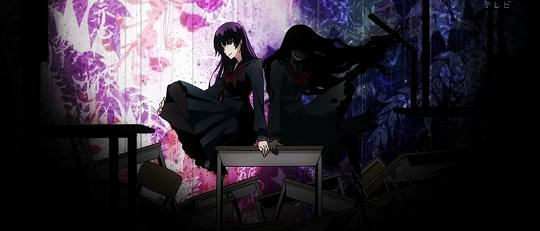
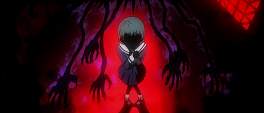
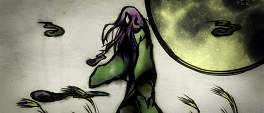
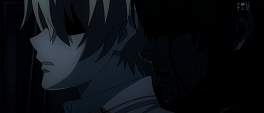

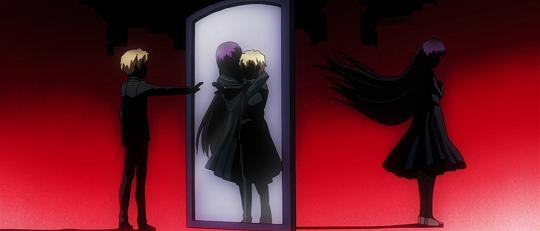
The second form is probably tied to the origin story of Yuuko and why she's a wandering spirit but as to how it all fits together, at this point I couldn't even speculate. There's obviously a rich lore to draw upon from traditional Japanese ghost stories so Yuuko's death could be anything from the macabre to the mundane.